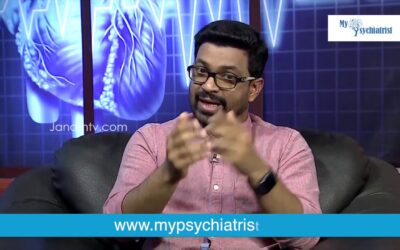Dementia is a condition wherein there is a deterioration in the mental abilities of a person who had been adequately functioning until a certain age. This results in difficulties in coping up with their responsibilities at work and at home, and problems performing daily activities like grooming, feeding etc.
The most common presentation is loss of memory regarding recent events and inability to recall them. Long-term memory including childhood events are often well retained. In addition to memory, dementia can also affect other areas of brain causing difficulties in language and naming, mathematical calculations, judgment, and problem-solving abilities. They may also have difficulties with geographical orientation (the ability to remember travelling routes such as the way to work or home, navigating the way from the bedroom to the kitchen etc.), and praxis (the planning and step by step execution required to carry out tasks which involve sequential instructions like dressing, cooking etc).
Psychological symptoms are also seen in many dementia syndromes, manifesting as depression, apathy, anxiety, hallucinations, delusions, agitation, insomnia, sleep disturbances, compulsions, or disinhibition. These problems often worsen the primary issues and cause significant burden to the caregivers.
Dementia has many causes, the most common of which is Alzheimer’s Disease. Other causes of brain degeneration such as Parkinson’s disease, schizophrenia, and diseases affecting the blood vessels (uncontrolled hypertension and diabetes, autoimmune disorders) of the brain can also result in dementia. Certain vitamin deficiencies (Vit B12, Niacin, Thiamine), heavy metal toxicity, alcohol abuse, hormonal imbalances (thyroid) and a condition known as normal pressure hydrocephalus are also known to cause dementia. These may be reversible to an extent if proper treatment is provided at the right time. Infections and injury to the brain can also cause dementia.
Forgetfulness is a common complaint as age advances. One of every 10 persons above 70 years and 1 to 2 of every 5 persons above 85 years have clinically identifiable memory loss. If a person has identifiable impairments in mental abilities, but it does not seriously disrupt daily activities, it is often referred to as mild cognitive impairment (MCI). MCI is more likely to progress to dementia in those with a prominent memory deficit, history of dementia in the family, and detectable changes in brain imaging tests.
Although 75% of patients with dementia begin with disturbances in memory, other symptoms may also be seen. These include difficulty in managing money, driving, shopping, following instructions, finding words, or navigating. Although less common, in some types of dementia, changes in personality including loss of empathy, disinhibited and inappropriate behaviour, excessive eating and weight gain may also be seen. Some patients may report seeing things that are not real, may become disoriented and be unable to identify people and places, or may also develop false beliefs regarding other people’s identities.
While assessing a person with dementia, the doctor or psychologist may perform certain tests to ascertain the degree of mental deficits. In addition, brain imaging tests and blood investigations may be performed to find out if the cause of dementia is reversible or treatable. A functional assessment of the patient and caregiver is important before a treatment plan is finalised. This needs to consider the impact of dementia on their daily functioning (grooming, feeding, and other self-help activities), ability to continue with community affairs and social interactions outside the house, hobbies, and judgement.
Psychological symptoms such as mild depressive features, social withdrawal, and irritability or anxiety may be seen in the early stages. It is important to address these to improve the quality of life of the patient. Very often the core symptoms of dementia may worsen due to these added psychological symptoms. During later stages of the disease, delusions, agitation, and sleep disturbances may also occur. These are usually very distressing to both the patient and the caregiver.
These psychological symptoms often respond to specific treatment. Antidepressants help with anxiety and depression. More severe behavioural problems such as agitation, imagined voices and experiences, false beliefs, and confusion are more difficult to treat. However, it is important that these be addressed as it is often the major reason for caregiver burden and cause of nursing home placements. Correctable causes such as dietary changes, provision of adequate physical activity, treatment of other infections etc are carried out first. Additionally, if required, specific medications that target these problem behaviours (antipsychotics) may be given at low doses.
The primary goals are to make the patient’s and caregiver’s lives comfortable, uncomplicated, and safe. Preparing lists, schedules, calendars, and labels can be helpful in the early stages. Familiar routines including walks, and simple physical exercises are beneficial. Patients often object to losing control over familiar tasks such as driving, cooking, and handling finances. Attempts by the caregiver to help or take over may result in complaints, depression, and anger. Reassurance, distraction, and calm positive statements from the caregiver’s side may be helpful in this setting. Safety requirements for driving, and changes in the kitchen, bathroom, sleeping area, and staircases need to be made to avoid accidents.
Frustration, depression, and burnout among family members and caregivers is another important issue that needs to be addressed. Caregivers should not hesitate to approach mental health professionals or support groups for help when ever required.
Dementia is a progressively debilitating disorder that impacts both the patient and the caregiver. Associated psychological and behavioural symptoms generally have a significant contribution to the burden and need to be treated appropriately to ensure optimal quality of life of the patient and caregiver.



0 Comments